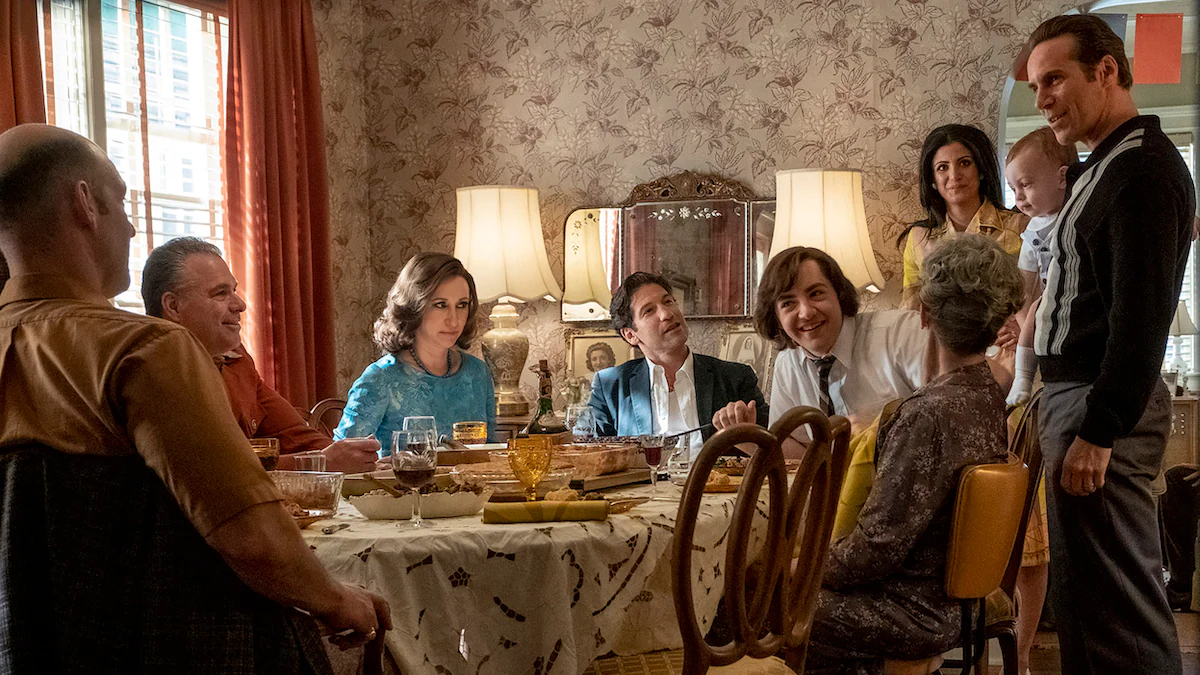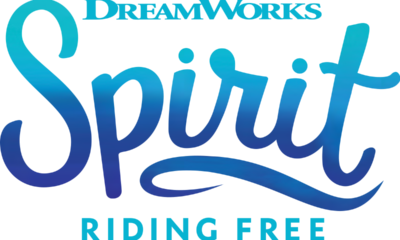Movies News
Doc Talk: Predicting the Documentary Feature Oscar: 5 Plausible Nominees; 5 Possible Alternates; and 5 Unconventional Suggestions

Last week the Oscar race was tightened for at least one category as the Documentary Short Subject field was narrowed down from 35 eligible titles to 8 shortlisted finalists (head over to my documentary blog for info on each of those). In about a month, a similar shortlist will be announced for the Documentary Feature category, when the Academy’s Documentary Branch whittles the number down to 12-15 titles out of who knows how many.
The fact that the public doesn’t yet know the number of qualifying documentaries, let alone all their names, makes it difficult for me to both predict the nominees this early and also suggest to the members of the Documentary Branch films I think ought to be at least shortlisted (favorite titles I’m sure qualified last year include Cave of Forgotten Dreams, Boxing Gym, Armadillo and How to Die in Oregon). But I’m going to do my best, because there’s no harm in guessing the Oscars way in advance. If there were, a lot of online movie writers would be twiddling their thumbs until January. Forgive me, though, if I include any films that aren’t in fact eligible. I tried very hard to avoid this.
First I’m going to go ahead and get my predictions out of the way. It’s a pretty tough year without many obvious standouts, but I believe the following five titles fit what the Branch will be looking for:
Paradise Lost 3: Purgatory (Joe Berlinger and Bruce Sinofsky) – If a trilogy’s final installment can win Best Picture (LOTR: The Return of the King), why not Best Documentary? Given that the West Memphis Three were freed this year, partly thanks to Berlinger and Sinofky’s films about them, makes this a choice that’s both topical and an example of the power of the medium. The trio of still-convicted men would probably get a standing ovation from the Kodak audience, if they not only could attend the ceremony but made it up to the stage if the film won.
Buck (Cindy Meehl) – Probably the most popular documentary of the year in terms of festival love (i.e. audience awards) and box office (it’s the highest-grossing doc that’s not 3D, IMAX, Disneynature, Justin Bieber or Kevin Hart) and critical acclaim (87% Rotten Tomatoes score), this film about the connection between human/horse relationships and human/human relationships via a profile on Horse Whisperer Buck Brannaman should be the crowd pleaser among the bunch. Of course, popularity and box office success didn’t’ work for Waiting for “Superman” last year.
The Interrupters (Steve James) – Not just to make up for the “snub” of James’ Hoop Dreams back in 1995 (when it was nominated for Best Editing, at least), this great, positive film about peace negotiators on the Chicago streets is one of the best films of the year, period, and the clearest certainty for a nod come January. There’s not even much need to defend this prediction. It will be nominated.
Hell and Back Again (Danfung Dennis) – As the Afghanistan War continues after ten years, there should be a token film on the subject, even if it might seem a repeat of last year’s Restrepo. Plus, honoring this film would serve as an honor to not just vets and troops but also journalists, including documentarians like Dennis, who embed themselves in the thick of war and endanger their lives for the sake of the story. It would serve as tribute especially to Restrepo’s co-director Tim Hetherington, who lost his life embedded in Libya this year (and whose final short film, Diary, was either snubbed or not eligible for the Documentary Short Subject shortlist). This could possibly be a toss-up with the higher-grossing Where Soldiers Come From, but Hell is a far better film.
The Rescuers: Heroes of the Holocaust (Michael King) – I could joke that the category needs its token Holocaust film, but really it’s been a very long time since a documentary on the subject has been nominated (I think Into the Arms of Strangers was the last, 2001). I’m not certain this has the goods in a filmic sense, but the way it unites a survivor of the Jewish Holocaust and a survivor of the Rwandan genocide for a look at 13 diplomats who saved Jews during WWII and a discussion of how to stop future holocausts from occurring is already a powerful and Oscar-suited concept.

My skills as a prophet are slim, so here are five possible alternates I’d love to see make the final list:
Project Nim (James Marsh) – Still my favorite film of the year, though I hesitate to predict this chimp biopic as a frontrunner because it hasn’t been very successful at the box office, and so the Academy might snub it since Marsh was already honored well for 2009 winner Man on Wire.
We Were Here (David Weissman and Bill Weber) – For a conventional documentary consisting of just historical archive material and a handful of talking heads, this film about the start of the AIDS crisis in San Francisco is extremely powerful and moving stuff. If a majority of Documentary Branch voters have a heart and tear ducts, they won’t be able to resist it.
Senna (Asif Kapadia) – As Guy Lodge of In Contention pointed out in August, this documentary about Formula One racer Ayrton Senna is eligible for the Academy Award in spite of being entirely made up of archival footage, a factor many mistakenly think kept Grizzly Man from a nod. I could see its Hollywood fans, particularly Ron Howard, making a push for this one. And if it’s snubbed, how about an editing nomination?
The Black Power Mixtape 1967-1975 (Goran Olsson) – Another doc consisting entirely of archival footage, this is much less likely to be recognized. Yet for its form and interesting play with historical, national and media perspectives, I believe it’s highly deserving. Its “faults” from the Academy’s viewpoint aren’t any different from those of 2011 nominee Gasland, though that doc had a more timely cause at hand.
Nostalgia for the Light (Patricio Guzman) – This might fit with the crop of unconventional/unlikely films below, but the voters who gave Werner Herzog’s Encounters at the End of the World a nomination a few years back could see similar reason with this doc, which takes us to Chile’s Atacama Desert for a look up into space for signs of life and a look down into the ground for signs of death. Also, Guzman, director of classic documentary works like The Battle of Chile, should be seen as due for an Oscar.

And now here are five nonfiction films I would love to see nominated but are just not conventional enough to be Oscar material, in this category anyway, even post-Exit Through the Gift Shop:
Pina (Wim Wenders) – This arty 3D dance film from a former Documentary Feature nominee (with Buena Vista Social Club) could be a game-changer for nonfiction cinema (along with Cave of Forgotten Dreams), and an organization devoted to the movies really should be aware of and favorable to docs that are this theatrically necessary. But sadly, as Steve Pond of The Wrap reminds me in his own list of doc Oscar suggestions, the Academy’s Documentary Branch may not appreciate this because most of them view qualifying films via DVD screener. I’m sure it’s still pretty decent in 2D, but not the magnificent experience it is in 3D. Hopefully, like Waltz with Bashir in the past, this can at least charm the voters of the Foreign Language category, since it’s Germany’s submission this year.
The Arbor (Clio Barnard) – I won’t pretend to have seen this film (both this and Nostalgia for the Light continue to elude me, embarrassingly), yet I can address its acclaim and its originality. The film is about the late British playwright Andrea Dunbar and, like Waltz with Bashir, depends on reenactments because only audio interviews are available. Rather than animation, however, Barnard has actors lip-synching the subjects’ voices. Surely the Academy isn’t okay with so much staged material, unfortunately.
Bombay Beach (Alma Har’el) – Speaking of staged material, this incredibly original verite-meets-fantasy hybrid is sure to be looked at as less fact than fiction, regardless of what Har’el says about its truth, primarily because of its choreographed dance numbers. The director may not mind since she’s not keen on the idea of defining her film as a documentary anyway. In that case, how about a nomination for Best Picture?
Life in a Day (Kevin Macdonald) – This collaborative effort overseen by producer Ridley Scott and curator/director Macdonald (an Oscar winner for his feature doc One Day in September) is surprisingly brilliant, and it has been met with mostly favorable reviews, but it hasn’t had much favor from audiences. Like them, the Documentary Branch will probably see it as a gimmick, overlooking the bigger picture while focusing on how it’s seemingly just a compilation of amateur YouTube videos. A shame because it’s actually a mesmerizing experience and another doc best seen theatrically, not to mention it’s a grand step for the growing genre of crowd-source films (and hopefully an influence on the Occupy Wall Street doc currently in the works).
Into Eternity (Michael Madsen) – None of the above four films really have an issue to get behind, and while this isn’t a necessity for a nomination, it does help. For this doc, the cause is a forgotten one, that of radioactive waste and what this stuff means for the future of earth, whether or not humans remain here to enjoy it. More than an issue doc, though, Into Eternity is a stunning Herzogian portrait of an unbelievably massive waste depository being built deep into the ground in Finland. As Madsen and his subjects contemplate the next 100,000 years in order to figure out how to properly handle the long-term storage, the doc plays like a sci-fi film, which might confuse or turn off Documentary Branch voters.
Finally here are ten heavy-content contenders, most of which I haven’t yet seen (and some I dislike), that I wouldn’t be shocked to see make it onto the shortlist and maybe garner a nomination: The Carrier, If a Tree Falls: A Story of the Earth Liberation Front, Semper Fi: Always Faithful, The Pipe, Miss Representation, Better This World, The Last Mountain, Koran By Heart, Incendiary: The Willingham Case and The Boy Mir: Ten Years in Afghanistan.

NEW RELEASES
One of this week’s major new documentary releases is a film many view as an Oscar contender, but it really has no chance. It’s not even that good, but Being Elmo: A Puppeteer’s Journey is at least an enjoyable look at the little red Sesame Street Muppet and the man who gives him ‘life’ and a voice, Kevin Clash. Back in my Sundance roundup, I noted it’s too short and too insubstantial to warrant a theatrical release, though I guess it could be a better movie to take your kids to than Puss in Boots, provide they’re not too confused about what Clash’s role is. If you can’t find a screening where Clash (and Elmo) makes an appearance, I think it’s better to wait for the small scren on this one.
My higher recommendation is for Chris Paine’s Revenge of the Electric Car, especially to those who’ve seen and may have disliked Paine’s prior doc, Who Killed the Electric Car? Chalk this up with The Godfather Part II and The Empire Strikes Back as one of the few sequels that’s better than the original. This is even more of an achievement, though, as Revenge is such a more polished work, in which Paine moves on from the electric car owners of Killed to focus, quite intriguingly, on automakers big and small developing the next generation of battery powered vehicles. Sadly, though, the electric DeLorean is not included.
A whole bunch of docs hit DVD this week (see my documentary blog for a look at all of them), but I’d like to acknowledge two favorites that I came very close to featuring in my Oscar predictions above. One is Janus Mertz Pedersen’s Armadillo, which I eventually learned (almost too late) qualified last year. Of all the recent embedded looks at the Afghanistan War, this one involving Dutch soldiers is my favorite, mostly due to how cinematic it is. Between the cinematography and the incredible coverage Pedersen manages by placing cameras seemingly everywhere, the Academy would probably have mistaken it for a fiction war film anyway. Even then, it’s one of the best war films in years.
The other film is Michael Rapaport’s Beats, Rhymes & Life: The Travels of A Tribe Called Quest, which is one of the best music docs in years. I’ve said it a billion times already, but even if you’re not a fan of A Tribe Called Quest you should enjoy this movie, the story of which is familiar in the history of music groups. It starts out rather conventionally but be sure to keep with it for an engaging drama that doesn’t hold back. Thankfully, Rapaport stuck to his guns in making a film about Tribe, not for them.
Join me again in two weeks for another Doc Talk. Until then, follow me on Twitter @thefilmcynic for regular documentary coverage.
You may like
-


Documentary on COVID Fighter Emerges as a Portrait of Public
-


Powerful Documentary Explores ‘Ex-Gay’ Movement
-


The Meaning of Hitler (2020) 1h 32min | Documentary | 13 August 2021 (USA)
-


Summer of Soul (…Or, When the Revolution Could Not Be Televised) (2021) PG-13 | 1h 57min | Documentary, Music | 2 July 2021 (USA)
-


Rita Moreno: Just a Girl Who Decided to Go for It (2021) PG-13 | 1h 30min | Documentary | 18 June 2021 (USA)
-


Diane Warren Documentary within the Works on Prolific
Gary Marsh to Exit as Disney Branded Television President,
‘The Many Saints of Newark’ Magical and Burdensome, Reviews



‘Shang-Chi’ Adds $21 Million as Box Office Slows Down



‘The Eyes of Tammy Faye,’ ‘The Card Counter’ Revive Indie



‘Trust Me, You Don’t Want This’
Trending
-



 Movies News6 years ago
Movies News6 years agoVenom struggle scene footage with out CGI is sure to make you giggle
-



 Movies News4 years ago
Movies News4 years ago‘The Eyes of Tammy Faye,’ ‘The Card Counter’ Revive Indie
-



 Movies News4 years ago
Movies News4 years ago‘Shang-Chi’ Adds $21 Million as Box Office Slows Down
-



 Movies News4 years ago
Movies News4 years ago‘The Many Saints of Newark’ Magical and Burdensome, Reviews








